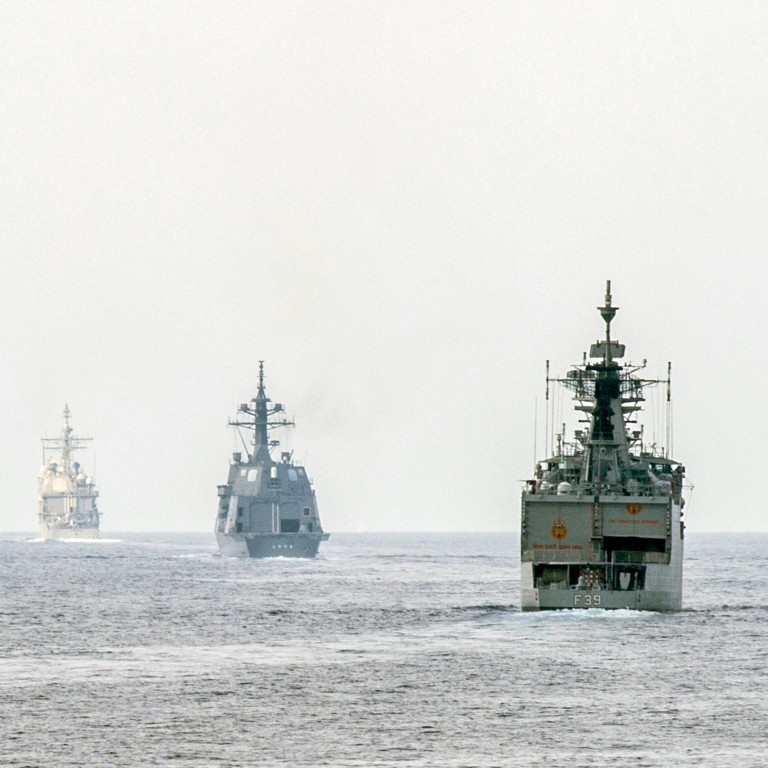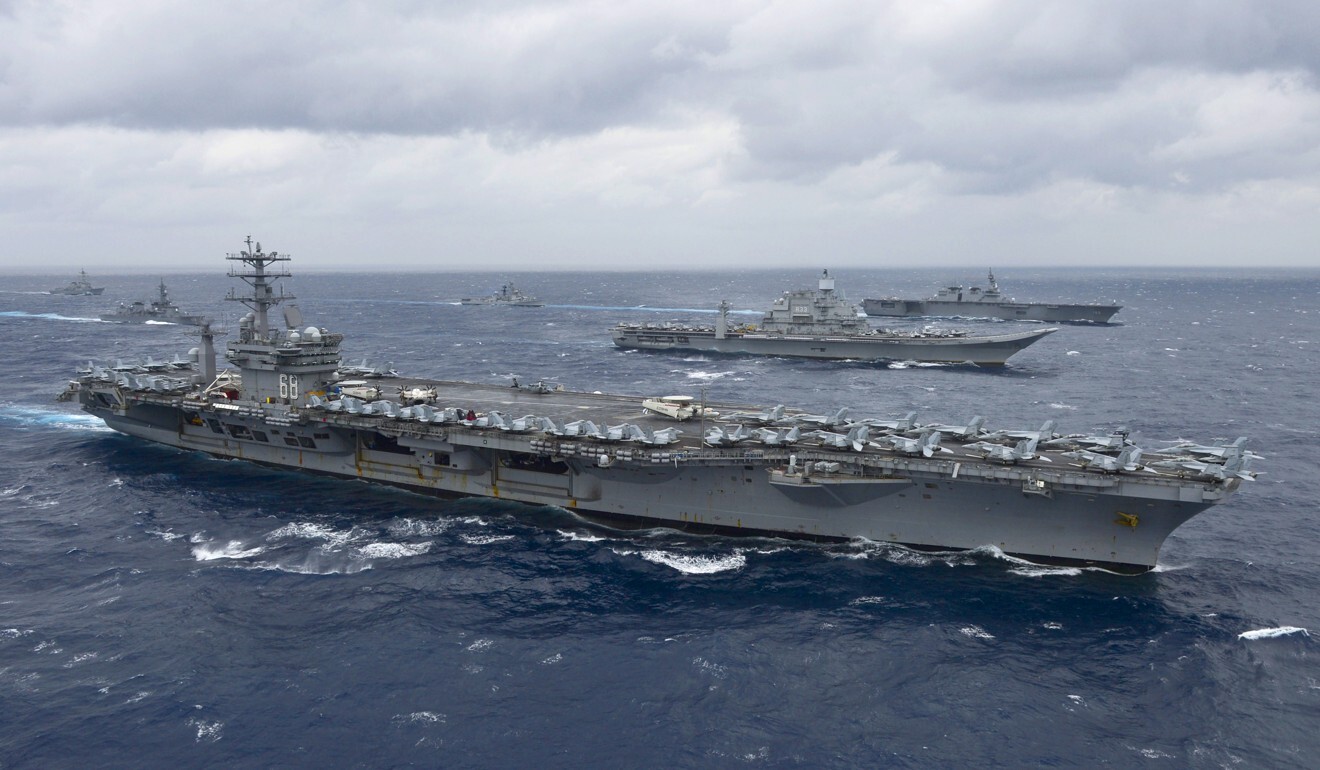
India set to invite Australia to join Malabar naval exercises
- Military sources say offer to join Japan and America in four-way drill is logical next step after the two countries agreed to improve cooperation last month
- New Delhi has moved to strengthen relations with Asia-Pacific nations as its relationship with China deteriorates
India is planning to invite Australia to join its annual Malabar naval exercise as it seeks to strengthen its relationship with other Asia-Pacific countries amid ongoing tensions with China.
India has yet to issue a formal invitation, but officials said it was in the pipeline after both sides agreed to improve defence cooperation at a virtual summit on June 4.
Japan and the United States have already been invited to join the exercise.
“Such a move involves not just geopolitical considerations but also logistical ones since it would mean at least four navies participating. The question is how do we still ensure the exercise remains meaningful for all the four?” said an Indian military source, speaking on condition of anonymity.
“We also need to consult our Japanese and American counterparts.”
Diplomatic sources said the move would be a logical next step after the virtual summit between the two countries, where they signed a mutual logistics support agreement, a document that will allow the two militaries to access each other’s bases and help the militaries share resources.
“Both sides had been harbouring reservations about Australia’s inclusion in the exercise and what its geopolitical implications would be.
“But both sides have come to agree that strategic concerns are now too overwhelming to be ignored,” an Indian diplomatic source said, pointing to Chinese aggression in the region and its frayed ties with both India and Australia.
China-India border dispute may force South Asian neighbours to pick a side
A statement released following the virtual summit of the two nations did not name China, but added that “many of the future challenges are likely to occur in, and emanate from, the maritime domain”.
Relations between India and China have hit their lowest point in decades following a stand-off along their disputed Himalayan border and a clash on June 15 in the Galwan Valley that left 20 Indian soldiers dead and resulted in an undisclosed number of Chinese casualties.

India has also moved to strengthen its ties with Vietnam and the Philippines.
On Monday, Vietnam’s deputy defence minister Nguyen Chi Vinh and Indian secretary of defence Ajay Kumar both affirmed that defence cooperation was an important pillar of the two countries’ relationship.
The previous week, Philippine defence secretary Delfin Lorenzana said India was interested in carrying out navigation activity in the South China Sea, where a number of countries have competing claims with China.
India and Indonesia have also signed a memorandum of understanding on maritime safety and security.
China’s military is using spider excavators to build roads near Indian border
Rajeev Chaturvedy, an international relations specialist based in New Delhi, said it would be misleading to say that India was building up ties with nations having disputes with China.
“However, it is a fact that India has refused to accept a sino-centric order in Asia,” he said. “The Galwan Valley clash has further strengthened India's resolve to focus on building developmental partnerships while China pursues incremental territorial grabs in the neighbourhood.”
India’s former high commissioner to Australia Biren Nanda said the move to include Australia in the naval exercises was only a “natural progression” of the growing strategic ties between New Delhi and Canberra.
He also said Australia’s worsening relationship with China appeared to have convinced India to expand the Malabar exercises.
“One of the reservations India has had about including Australia is whether it would be consistent enough and whether it would be susceptible to Chinese pressure,” said Nanda.
“Covid and Chinese aggression are disruptions that have united many countries who were in favour of closer cooperation but were afraid to cross the line,” he continued. “China’s rising assertiveness is the tipping point for many of these countries.”
Jabin Jacob, an associate professor of international relations at Shiv Nadar University in Uttar Pradesh, said the Galwan Valley clash had come as a surprise to India.
“There will naturally be consequences for China. India will take such remedial action as it deems fit – this will range from building up its own military power along the Line of Actual Control to strengthening its bilateral military ties and intelligence sharing with those countries that it finds are also interested in deterring Chinese bad behaviour,” he said.
Additional reporting by Laura Zhou


